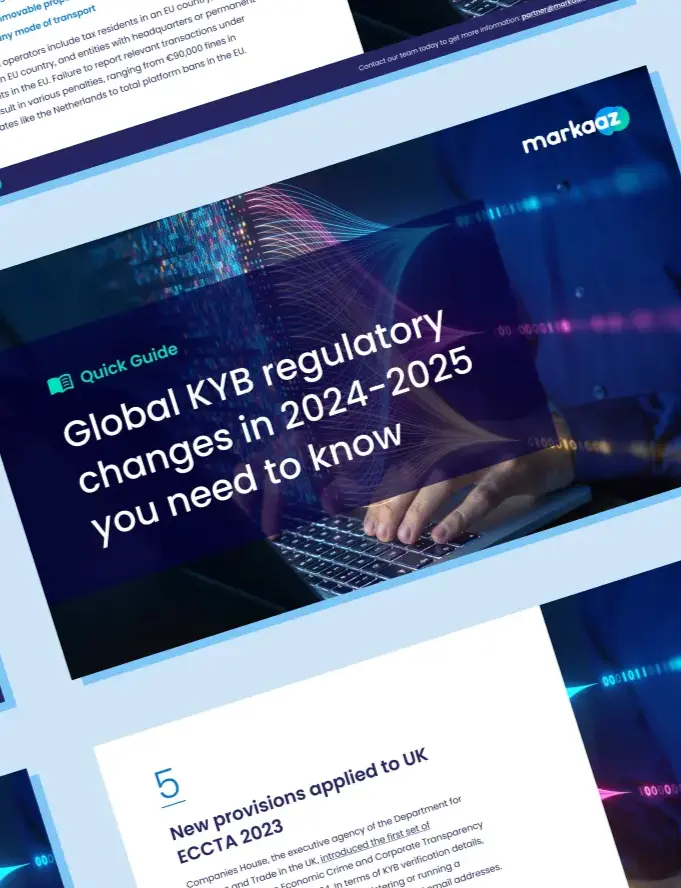One of the most underestimated things business owners deal with regularly is business credit and its impact on their company.
On top of that, the single biggest unknown about business credit is that a business credit score exists in addition to a personal credit score. The 2015 Nav American Dream Gap Survey revealed that out of 250 small business owners surveyed, 45% did not know they have a business credit score, 72% did not know where to find information on their business credit score, and 82% didn’t know how to interpret their score.
The good news is that you don’t have to be a financial expert to navigate the business credit world. By understanding the essential components of business credit, establishing it, and the differences between business credit and personal credit, you can build a solid financial foundation for your company.
Here are five things most business owners don’t know about business credit:
1. What goes into your business credit profile
Business credit is a compilation of several scores put together by different bureaus, and sometimes, they reflect information differently. Unlike a personal credit score, no single score helps a potential lender evaluate your business’s creditworthiness.
Some of the components of your business credit profile include:
- Payment history: This includes detailed information about your business credit cards, banks, utilities, suppliers, and other creditors. This information will contain any past due status, current outstanding balances, the date your business established an account, and a detailed history of payments.
- Public records: This includes information about your company on a city, county, and state level, and federal records such as property ownership, business license, tax reporting status, and potentially damaging information like lawsuits, judgments, tax liens, and previous bankruptcy.
This information is designed to reflect the financial condition of your business and its capacity to service debt.
2. What your business credit profile says
More than anything, your business credit profile reflects how your business meets its financial obligations. This includes if you pay your utility bills on time, the lease payments on your business location, and any business-specific debt you have. One thing to note is that your business credit profile is not the only part of what a lender considers when reviewing your small business loan application. For most small business owners, a personal credit score will be included in the criteria.
Several sources are used to compile your business credit:
- Any legal filings that could include recorded lawsuits, liens, judgments, or delinquent taxes
- Business credit history — the accounts your business has obtained and your payment history with those creditors or other lenders
- Other information found publicly, like how long you’ve been in business, your industry, etc.
3. How it’s different from your personal credit score
Business credit profiles differ from personal credit scores in that the information is used to produce a unique evaluation of the business. The way a company must be set up to build business credit means that your company’s accounts will not affect your personal credit (if set up correctly). However, the reverse is not necessarily true. When lenders look at your credit, they might not only pull a personal credit report but use other sources, which can affect their decisions.
Why is business credit relevant? There are a few reasons business credit is essential. First, it protects your personal credit. If you set up your company correctly, your operational finances should not affect your personal credit score. This will ensure that if your business suffers, your personal finances can still stay intact.
Additionally, if you do not have business credit, you will have to fund your company on your personal credit alone. Individual limits are typically much lower than business credit limits; conversely, company credit expenses generally are much higher than personal expenses. This means that even if you pay off your monthly expenses, you will likely hover near your limits consistently.
That will increase your debt-to-credit ratio, which will, in turn, lower your personal credit score. So even if you do everything right, you could damage your personal credit if you try to use it to fund your company.
4. Why you should separate your business from yourself
Understanding the potential perils of having your business credit linked to your personal score, you may wonder how to separate your business from yourself. To do so, start by:
- Establishing a separate phone number and address for the business.
- Formally incorporating as an LLC, S-corp, or Corporation.
- Establishing a separate company bank account.
- Having a professional corporate website.
- Having a separate corporation email address with the same URL as the website.
- Getting an EIN and using it instead of your SSN to apply for business credit.
- Getting a D-U-N-S number.
5. How to monitor your business credit score
You should keep an eye on your personal credit score; the same applies to business credit scores. Understanding the movement of these numbers can help you track the progress you’re making in your credit-building journey.
It’s worth noting that you can have multiple business credit scores, just like personal credit scores. Equifax, FICO®, Experian, and Dun & Bradstreet all develop different business credit scores that lenders can buy and use to evaluate risk.
Powered by Equifax, Markaaz also allows you to access your Business Credit Risk Score, along with the scores of other businesses you wish to keep track of.
Use our real-time monitoring in partnership with Equifax and be the first to know when your Business Credit Risk Score changes.




